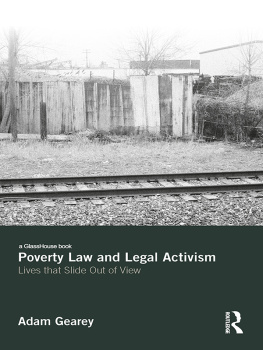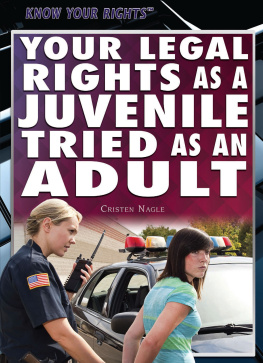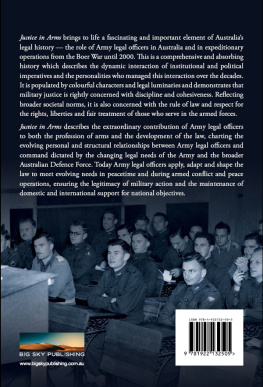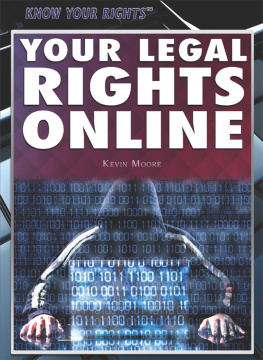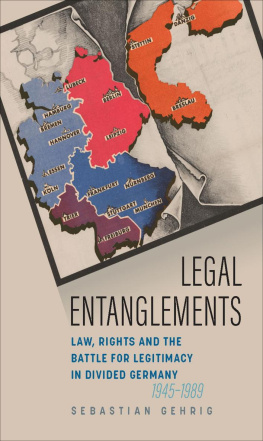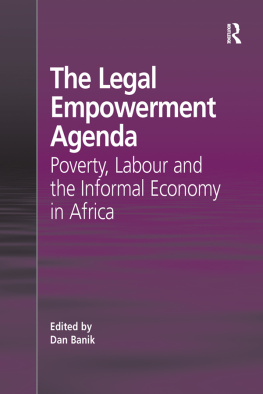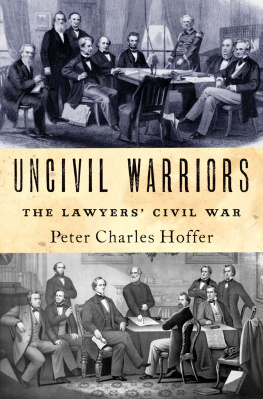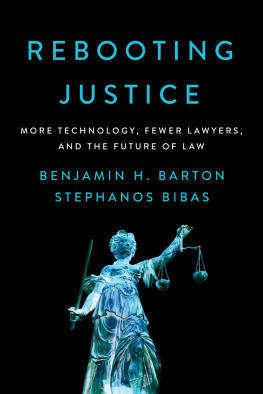Making the Modern South
DAVID GOLDFIELD, EDITOR
Rationing Justice
POVERTY LAWYERS AND POOR
PEOPLE IN THE DEEP SOUTH
KRIS SHEPARD
Published by Louisiana State University Press
Copyright 2007 by Louisiana State University Press
All rights reserved
Manufactured in the United States of America
Louisiana Paperback Edition, 2009
First printing
Designer: AMANDA MCDONALD SCALLAN
Typeface: WHITMAN
Typesetter: G & S TYPESETTERS, INC.
Library of Congress Cataloging-in-Publication Data
Shepard, Kris.
Rationing justice : poverty lawyers and poor people in the deep South / Kris Shepard.
p. cm. (Making the modern South)
Includes bibliographical references and index.
ISBN-13: 978-0-8071-3207-4 (cloth : alk. paper)
ISBN-10: 0-8071-3207-1 (cloth : alk. paper)
1. Legal assistance to the poorSouthern States. 2. Legal aidSouthern States.
I. Title. II. Series.
KF336.S52 2007
344.7503258dc22
2006014235
ISBN-13: 978-0-8071-3416-0 (pbk.)
The paper in this book meets the guidelines for permanence and durability of the Committee on Production Guidelines for Book Longevity of the Council on Library Resources.

For Kirby
Contents
APPENDIX:
Political Support for the Legal Services Corporation
Acknowledgments
I am deeply indebted and grateful to a long list of people who made this book possible. My advisors at Emory University, Dan Carter, David Garrow, and Leroy Davis, were especially thoughtful and supportive throughout the project, in particular during the hazy early days as the story told in these pages was coming into focus. Others at Emory, the University of North Carolina at Chapel Hill, and the University of Virginia School of Law provided guidance as well, and I appreciate their input. Some of the brightest people I know took time from their studies to help cure what ailed mine, and for their wisdom and insight I thank them: Andrew Miles Kaye, Brian Luskey, Rob Widell, my fellow Mellon Southern Studies Fellows at Emory (particularly Steve Hahn), and others.
Much of this story was told to me by the people who lived it. Without their having opened up their lives to me, this would have been a very different and far less interesting book. In addition, many people who are or were involved in legal services programs provided me with documents and records from their personal files or the files of their respective institutions. Steve Gottlieb of the Atlanta Legal Aid Society and Phyllis Holmen of the Georgia Legal Services Program deserve special mention, but others provided assistance as well. Their efforts were critical contributions to my work because the records of the Legal Services Corporation are not complete, nor are those of each separate legal services program. Equally important were the librarians and archivists at the National Equal Justice Library at American University in Washington, D.C.; the state archives of Georgia, Alabama, and Mississippi; the federal repository in East Point, Georgia; the Legal Services Corporations records office; Emory University; the University of Mississippi; the University of Virginia; and the University of North Carolina at Chapel Hill.
Finally, I would not have acknowledged one of my most important sources of support if I failed to mention my family: my father, Adrian Shepard; my mother, Joyce Shepard; and my brothers, Kenny and Kevin. They have never let me down. My wife, Emy, patiently endured my educational career and my own personal foibles, and this book is as much a testament to her as to anyone. She is my life companion, and every day I am amazed to be in her presence. Emy has given me two equally inspiring children, Madeleine and Ava, whose captivating smiles are reflections of their mother. I pray that they will have opportunities like those that I have enjoyed, including meeting the people portrayed in this book and writing their story.
Rationing Justice
Prologue
Law is fine if you get on the good side of it.
HENRY CHESSER , a tenant farmer
I N the spring of 1964, at a Law Day address delivered at the University of Chicago School of Law, Robert F. Kennedy, then attorney general of the United States, chastised his audience of lawyers, professors, and law students for their failure to serve a group of Americans in desperate need of legal counsel: the poor. The occasion was the seventh Law Day commemorated in the United States. President Dwight D. Eisenhower proclaimed the first Law Day in 1958, and in 1961 Congress designated the first day of May as a special day of celebration by the American people in appreciation of their liberties and the reaffirmation of their loyalty to the United States of America; of their rededication to the ideals of equality and justice under law ; and for the cultivation of that respect for law that is so vital to the democratic way of life.
Within months of Kennedys Law Day address, Congress passed the Economic Opportunity Act of 1964 to mobilize the human and financial resources of the Nation to combat poverty in the United States. Low-income Americans had access to the legal system where access had not existed, influenced social policy in ways previously not possible, and incorporated legal norms and processes into their lives that were alien to them prior to contact with a poverty lawyer.
Yet, at the time Kennedy spoke in Chicago in the spring of 1964, those developments lay in the future. For the most part the nations poor did without legal representation, since legal expertise was distributed like any other commoditythrough the marketand lawyers made their living by leasing their knowledge to whomever could pay. Small legal aid societies had developed in a few dozen cities, and lawyers occasionally offered pro bono services to the poor, but these were exceptions that proved the rule: access to the legal system was a luxury. Legal counsel for the poor was especially scarce in the Deep South states of Georgia, Alabama, and Mississippi, where small legal aid societies appeared and disappeared sporadically in cities such as Mobile, Savannah, and Birmingham, but only the Atlanta Legal Aid Society forged a steady presence prior to the onset of federal financing in the 1960s.
The first legal aid society in the United States emerged in New York in 1876, when the citys German Society created the Deutscher Rechtsschutz-Verein, or German Legal Protection Society, to provide legal counsel to the wave of German immigrants who arrived in the United States during the late nineteenth century. The Rechtsschutz-Verein boasted one part-time attorney who helped protect his clients from the rapacity of runners, boarding-house keepers, and a miscellaneous coterie of sharperstranslated into less colorful language, unscrupulous employers, landlords, and shopkeeperswho found that the trustful and bewildered newcomers offered an easy prey. Although von Briesens conclusions about the impact of legal aid were almost certainly exaggerated, his appeal was successful. With the support of the citys wealthy philanthropists, the New York Legal Aid Society came into being.
Meanwhile, two legal aid societies appeared in Chicago. The first of these, like the Deutsche Rechtsschutz-Verein, was directed toward the problems of a specific group of the underprivileged, in this case young women and children. The Chicago Womens Club had become alarmed about the great number of seductions and debaucheries of young girls under the guise of proffered employment and sought to counteract such behavior by creating the Protective Agency for Women and Children in 1886. At the time, many Americans were concerned that the vicissitudes of wage labor and the market economy forced countless women to sacrifice their bodies in order to survive, and the agencys caseload reflected this concern, as nearly a quarter of the cases involved claims for unpaid wages (which, if received, might keep women off the streets). The organization soon broadened its scope from protecting female workers to providing a wider range of services for women and children.


